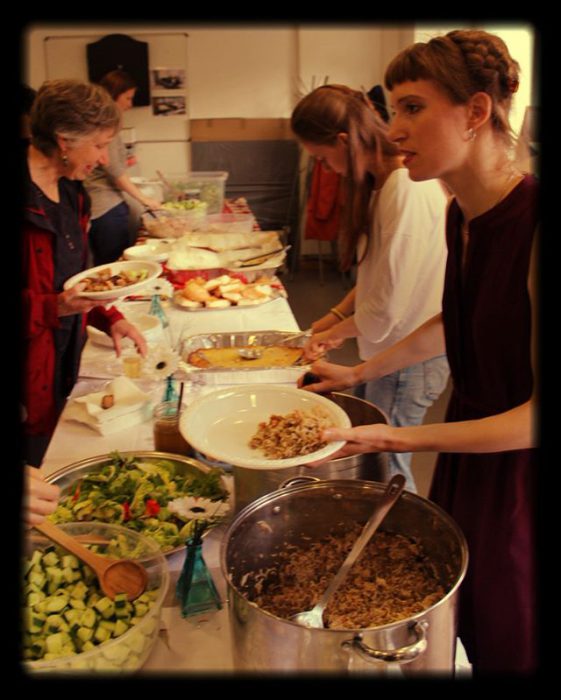Solidarity not Charity
Our voices 28 April 2017

During my time as a volunteer here, I’ve been overwhelmed with the unique and valuable work of Room to Heal. Our work may not be considered to be at the heart of the ‘refugee crisis’: we do not operate at the borders of Fortress Europe, we do not work in the camps where conditions appear at their most shocking and the refugees that we work with do not conform to the images that are on the covers of our newspapers. What we do at Room to Heal concerns the people and the struggles that we are less likely to see; what happens after the journey to Europe is over, what are the everyday realities of an asylum seeker navigating their way through a problematic, labyrinthine asylum system, and how does one come back to life after lifelessness?
At the core of Room to Heal’s work is the central foundation of community. This is not a charity divided by staff and those that we work with.The premise of equality is inherent in every aspect of the community, even in the way we address each other. Whilst it is conventional to refer to those that we work with as clients, or even patients here at Room to Heal we refer to each other as members. In doing so Room to Heal embodies the ethos of solidarity,not charity: a premise which in my opinion should be central to the work of all NGOs. Being treated with equality and respect as opposed to a pitiful charity case is crucial to restoring the dignity necessary to learn to love oneself again. I really do believe if the community model of Room to Heal were replicated elsewhere the quality of everyone’s lives, regardless of one’s citizenship status.
Many people have asked me why I volunteer. First and foremost I acknowledge that my ability to volunteer is a privilege, and one that I am incredibly grateful for.As someone with this privilege, I have always thought that this was the best possible use of my time. As a citizen of the UK, I feel a personal sense of obligation to help those who are escaping conflict and warfare. After building our nation on the back of colonisation as well as our recent foreign policies and prolific involvement in the arms trade, Britain has a responsibility to welcome people into our country. Britain is now the second largest arms trader in the world after America and supplies two thirds of their weapons to the Middle East, where a large proportion of global refugees are escaping. Our involvement in the origins of conflict, for example Iraq has arguably created conditions where groups such as ISIS have profited, ruining the homes and livelihoods of millions. As the fifth richest country in the world, welcoming refugees is a step towards coming close to rectifying the horrific practices of our past.
I have seen how Room to Heal does not look for quick solutions in the face of the complexities that members of our community face. I also don’t expect a quick solution will come that rectifies the divisions that have arisen within our communities, and society.However the organic community Room to Heal has built over the last decade proves that solutions are possible. Through sharing with, listening to and supporting our members we have created a family for those who have lost their homes. The current situation concerning refugees can seem overwhelming and unmanageable. While the newspapers may not report these seemingly small and invisible changes that occur in people’s lives, tangibly seeing these is enough to motivate anyone. By being the change that we want to see in the world Room to Heal offers a beacon of humanity in the midst of the dark political times we are facing universally.